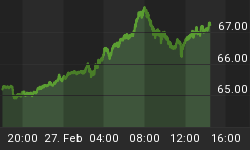Draghi stuck to his guns in today's press conference of the European Central Bank. Keeping the main refinancing rate unchanged, he discarded various proposals on how the ECB could bail out peripheral governments. Specifically:
- There is no quid pro quo, no horse trading. That is, if there's a path towards fiscal union, it does not mean the ECB will, for example, finance sovereigns.
- It is not right for the ECB to fill in for other institutions' lack of action.
- Specifically, while the LTROs have prevented more serious credit crunches/disruptions, liquidity is abundant. But there is fragmentation: some of the issues have nothing to do with monetary policy.
- On Spanish bank re-capitalization:
- Whether or not Spain should get external help should be based on facts, not politics: any EFSF decision should be based on a realistic assessment of needs to recapitalize banks and money available to government without need for external support.
- Regarding talk of pundits claiming that time is running out to fix the Eurozone:
- Draghi disagrees that there is a deadline, but agrees with the general fears. He says there needs to be a defined process, one where policy makers have clearly defined roles, deadlines and conditions to be satisfied. In our assessment, this is the single most important item to get the euro to strengthen. The lack of process, the dysfunctionality in Eurozone decision making, independent of whether we would agree with the goals, is weighing most on the euro.
- Draghi ready to act should economy deteriorate further
- Draghi did not specify how such action would take place. He pointed out that there are already negative real interest rates and downplayed the likely effectiveness of additional nonstandard measures. Having said that, Draghi did announce that various funding facilities remain in place.
Our conclusion: To get more monetary easing in the short- to medium term, count on the Federal Reserve, not the ECB.
Please sign up for our newsletter to be informed as we discuss global dynamics and their impact on currencies.















